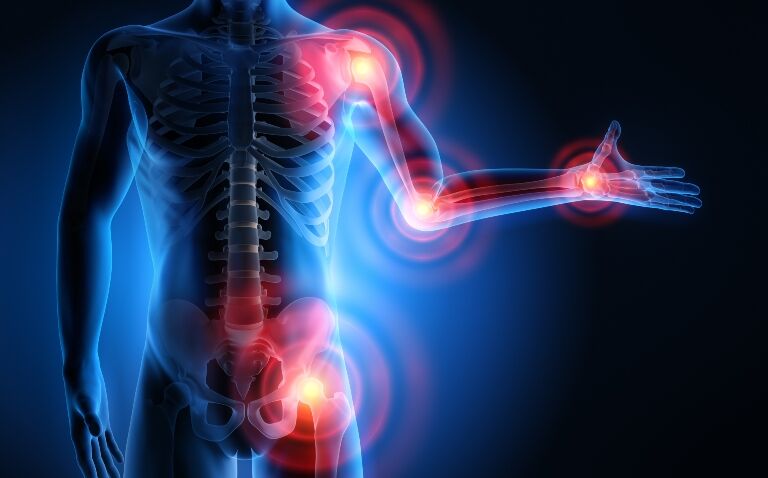An anti-IL17 peptide sequence has demonstrated high clinical efficacy in models of immune-mediated inflammatory conditions, warranting further clinical evaluation.
Researchers from the University of Birmingham, together with colleagues from the University of Naples Federico II, developed a novel anti-IL17 peptide sequence with greater activity and potentially fewer side effects than existing biologic therapies for immune-mediated inflammatory conditions.
Biologic therapies targeting interleukins, such as anti-IL-17, anti-IL12/23 and anti-IL23, have become established therapies in the treatment of immune-mediated inflammatory conditions such as psoriasis, rheumatoid arthritis and inflammatory bowel disease. However, these novel agents often show low therapeutic efficacy and immunogenicity in certain patient subgroups, thereby limiting their effectiveness.
Writing in the Annals of Rheumatic Disease, the researchers set out to improve the coverage and efficacy of antibodies targeting IL-17A and/or IL-17F.
Anti-IL17 peptide
Using murine and human IL-17A/F protein sequences, the researchers identified a bioactive 20-amino acid IL-17A/F-derived peptide that mimicked the pro-inflammatory actions of the full-length proteins.
Once this sequence had been determined, the team generated a novel anti-IL-17 neutralising monoclonal antibody directed against the sequence, which they named Ab-IPL-IL17™.
Using tissue and animal studies, the researchers were able to demonstrate that Ab-IPL-IL-17 was capable of effectively reversing the pro-inflammatory, pro-migratory actions of not only the 20-amino acid peptide sequence but also IL-17A/F.
In addition, when compared with secukinumab – the current gold-standard biologic – the anti-IL17 peptide gave rise to less off-target immune-related effects. There was also no reduction in platelet counts or an increase in the level of lymphocytes.
In a proof-of-concept study for rheumatoid arthritis, the anti-IL17 antibody inhibited the pro-inflammatory actions of chronically inflamed fibroblasts within the rheumatoid joint.
Similarly, using serum samples from treatment naive inflammatory bowel disease patients, their novel antibody was able to deplete plasma IL-17A, suggesting a potential to alleviate pathological pro-inflammatory changes.
The authors described how Ab-IPL-IL-17, which did not generate immunogenicity, lymphocytosis or thrombocytopenia properties, highlighted potential clinical superiority over current therapies.
They called for future clinical trials to address the varying requirements of Ab-IPL-IL17 as an alternative biological therapy for treating patients with immune-mediated inflammatory diseases.










